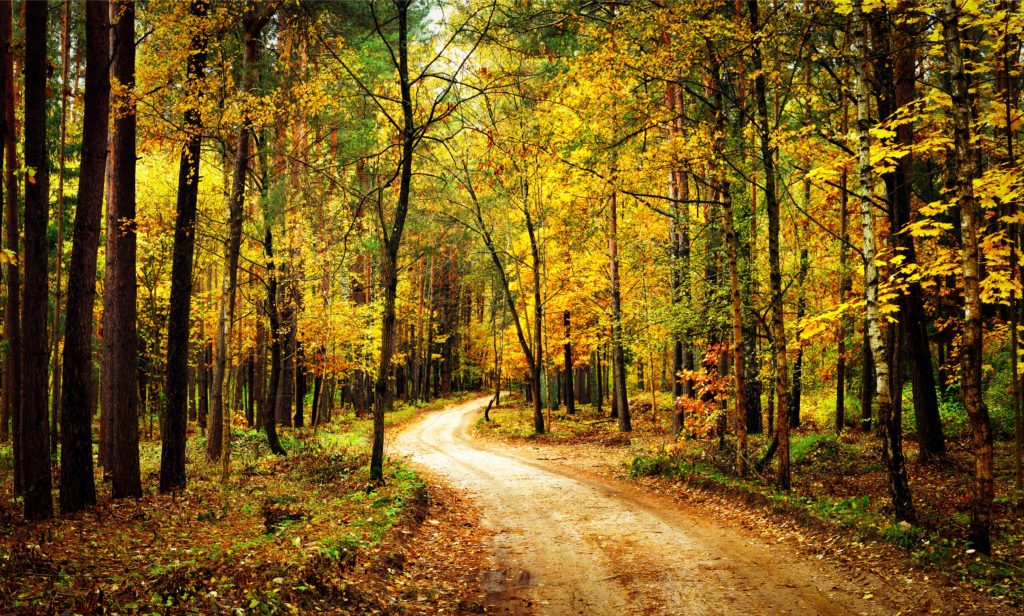Quick Hits
Daily brief research updates from the cognitive sciences

Does getting into the countryside really lower stress and improve wellbeing? Or is that those who enjoy the countryside feel less stressed in the countryside – but city lovers may feel less stressed in the city. It could also be that being in the countryside involves activity and exercise which we also know is beneficial so it could be the effect of movement and not nature itself.
This is a conundrum that researchers into the impacts of nature on health, wellbeing, and the brain need to try to disentangle. But first off there is plenty, and I do mean plenty, of research to show the positive effects of nature on human wellbeing and health – I regularly report on this: for example here or this one on walking in nature here.
To try to resolve some of these chicken-or-egg problems Sonja Sudimac et al. from the Max Planck Institute for Human Development conducted an interesting study. In this they compared the results of 63 people who undertook a 60-minute walk in the wood and of a 60-minute walk along the streets of Berlin.
What’s more their brains were scanned before and after both scenarios. This is unusual because almost all the research looks at subjective feelings – here the researchers could peer into the participants brains and see the difference before and after in city or in the forest.
What did they find?
The one thing they noticed is that activity decreased in a region of the brain called the amygdala. The amygdala is pretty well-known and is a centre in the brain that is involved in emotional processing but particularly of threat, fear, and in stress responses.
This therefore shows that brain regions associated with stress lower activation to walking in nature only and not in the city. The exercise is no doubt beneficial – the walk in the city, however, showed no increase or decrease in activity in the amygdala.
So, this is another piece of evidence but a very strong piece of evidence to show that nature can have beneficial effects – particularly in lowering stress.
The researchers are now following this up with research into how natural and urban environments impacts stress in mothers and their babies. I will be watching out for that one as well.
But for now – get yourself into nature for a walk

Andy Habermacher
Andy is author of leading brains Review, Neuroleadership, and multiple other books. He has been intensively involved in writing and research into neuroleadership and is considered one of Europe’s leading experts. He is also a well-known public speaker, speaking on the brain and human behaviour.
Andy is also a masters athlete (middle distance running) and competes regularly at international competitions (and holds a few national records in his age category).
References
Sonja Sudimac, Vera Sale, Simone Kühn.
How nature nurtures: Amygdala activity decreases as the result of a one-hour walk in nature.
Molecular Psychiatry, 2022
DOI: 10.1038/s41380-022-01720-6
More Quick Hits
Behaviour at eight helps predict midlife health behaviours
A long-term study in Finland has tracked children from the age of eight until the age of 50 and a new analysis of the data, just published, has looked at some of the correlations between socioemotional behaviour in childhood and later life achievement and health...
Psychedelics and consciousness
Psychedelics change our conscious experience of the world – that is part of their attraction. Now a new study out of John Hopkins Medicine has analysed data on attributions of consciousness to other animals and innate objects by those using psychedelics and how this...
Lower smartphone usage increases wellbeing
So much has been said about smartphone usage in modern times. This ranges from some who say that they are destroying our brain to others who see they benefit our cognition by outsourcing cognitive heavy tasks like remembering lists of phone numbers – thereby freeing...
Modesty preferred for cooperative teams
In an age where it appears that many people are vying for self-esteem especially through social media, this research is interesting. Particularly in business contexts where cooperation is king. Research has previously shown that appearing to be wealthy increases...
Poverty shrinks babies’ brains
Quick HitsDaily brief research updates from the cognitive sciences couple of studies have just been released which look at the brains of newborns and young babies. The results are worrying for any society. Brain scans of newborn babies from...
Babies born with five from seven functional brain networks
In the 1950s the blank slate theory was the most prominent theory ascribed to babies. They are born blank slates and then their experiences allow them to develop their networks thoughts, associations, etc., and just about everything else. Though this theory is long...






